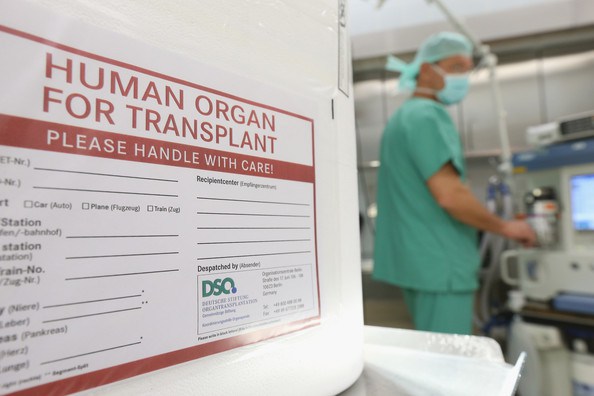-
Tips for becoming a good boxer - November 6, 2020
-
7 expert tips for making your hens night a memorable one - November 6, 2020
-
5 reasons to host your Christmas party on a cruise boat - November 6, 2020
-
What to do when you’re charged with a crime - November 6, 2020
-
Should you get one or multiple dogs? Here’s all you need to know - November 3, 2020
-
A Guide: How to Build Your Very Own Magic Mirror - February 14, 2019
-
Our Top Inspirational Baseball Stars - November 24, 2018
-
Five Tech Tools That Will Help You Turn Your Blog into a Business - November 24, 2018
-
How to Indulge on Vacation without Expanding Your Waist - November 9, 2018
-
5 Strategies for Businesses to Appeal to Today’s Increasingly Mobile-Crazed Customers - November 9, 2018
Increased Risk of Cancer Mortality for Organ Recipients
According to physician Nancy Baxter, from the the division of general surgery at St. Michael’s Hospital in Toronto, the study, which has evaluated the relation between cancer mortality and transplants, has found that even when solid organ transplant recipients can have longer lives, because of advances in the field of immunosuppression, they can develop at the same time an increased risk of dying from cancer, as she explained to MedScape.
Advertisement
The study which was conducted by the researchers from the University of Toronto found out through a wide review of transplant patients that an increased risk of cancer and cancer deaths awning transplant patients was noted regardless of the particular transplanted organ.
A new study in Canada found that patients who receive organ transplants have higher risks of developing cancer after the operation.
Skin cancer is on top of the list of cancers that results into early death in patients, and considering the same, Baxter said that patients knowing about the risks will definitely be useful. “Addressing the cancer burden in SOTRs is critical to improving the survival of these patients”, the authors conclude.
Cancer is the No. 2 killer of organ recipients, behind only heart disease, based on data spanning from 1991 to 2010 and including 11,000 transplant patients who had received kidneys, livers, lungs, or even hearts.
It was seen that people with SOTs were at a higher risk of dying from cancer as compared to the general population.
The study was published in JAMA Oncology.
The leading cause of death for SOTRs is heart disease. Also, when patients having malignancies were removed, the researchers found the risks of dying from cancer to be twice more than that of the general population.
Organ recipients are three times more likely to get cancer.
While malignant melanoma often has a more dismal outlook, non-melanoma skin cancers like basal- and squamous-cell carcinomas are typically far more curable for the average person. Immune systems are normally suppressed before an organ transplant so the recipient’s body doesn’t reject the new tissues. While it establishes an association between transplantation and cancer death, it does not provide an explanation for these findings. The risk was higher for children who received transplants but lower in patients older than 60.
“I don’t want the message to go out to these transplant patients that they’re going to die of skin cancer because chances are that they’re not”, she said.
The scientists believe that the increase in cancer deaths in transplant patients stems from their immune systems’ inabilities to respond to heavier treatments. Previous studies on organ transplants and cancer incidence were smaller in scope, and typically looked only at kidney transplant recipients. This needs to be avoided if the acts of transplant have to be made successful in reality.
Advertisement
“Getting these people to stop smoking is really important, and now that there’s lung cancer screening we need to really focus on that as well”, she said.





























